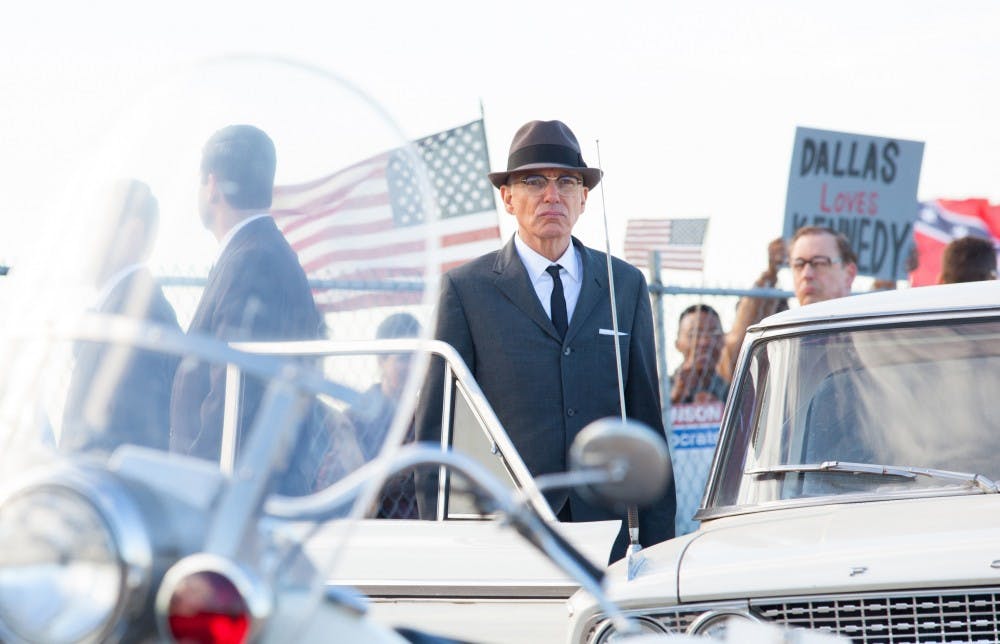Former New York Times investigative reporter turned filmmaker Peter Landesman began as a
painter before he moved into the fast paced world of journalism. After he began writing
projects for Tom Hanks about Watergate, Hanks gave him the idea to make a film about the
historic day of Nov. 22, 1963 when JFK was assassinated. Landesman’s new film “Parkland”
tracks four days after Nov. 22, telling the story from all sides.
The Eagle sat down with Landesman to talk about the significance of JFK 50 years later and his
transition from journalism to directing.
David Kahen-Kashi: How did you come to direct and develop the film “Parkland?”
Peter Landesman: For 50 years we’ve been obsessed with a murder mystery, which to me has been a massive distraction from the emotional truth of the day. I wrote a movie for Tom Hanks about Watergate, Deep Throat and after that he put this book in my hand, Vincent Bugliosi’s book, which is a masterpiece. But it was only like the blueprint, the data, of what
happened that day. And then my background is investigative journalism and I went on a
three-year journey to uncover people who are still alive and who were portrayed in the movie:
witnesses, characters, and then there’s a treasure trove of oral histories and interviews and
witness accounts.
DKK: What was it like writing this film from a journalist’s eye rather than a more dramatic
perspective?
PL: The problem was there was too much of it and you could have written 10 hours out of it. Butit kept confirming the premise of the movie, which was this is what was real and was true and happened to us and happening to us right now, not the theoretical nonsense, which was a great confirmation. As a journalist over the years, that’s what I’ve found everywhere I went is when weread the papers and the theories prescribed for something it usually bears no or little relation to
the truth.
DKK: What’s the transition from journalism to filmmaking like? Is it jarring to make that shift?
PL: No, the opposite. I was a painter before I was any kind of writer. Then I was a novelist and then a journalist and filmmaking was just the next move, the next iteration for me in terms of storytelling. Because I’m a painter, the visual aspect of filmmaking was organic. Working with
actors is something I know and love. So no, it wasn’t jarring, it was the opposite.
DKK: Why make a film about the JFK assassination when there are other films that sought to
tell the same story?
PL: Well, it’s the 50th anniversary so it’s gonna be on people’s minds. There just hasn’t been a film that has tackled the story in an emotionally true way, is really the only way you can say it. Oliver’s [Stone] movie is a great movie, and he’s a great filmmaker, but it’s just not true. It’s just nonsense. So there’s a mission, there’s an obligation, especially if it’s more powerful. The word
entertaining is such a complicated word, but it’s compelling.
DKK: So how do you treat entertainment as journalism? Because the film has an intent to inform rather than just be entertaining.
PL: A: You have to be careful. And B: you can’t lose sight of the fact that you’re making this to be consumed by an audience, so it can’t be dry. It can’t be like a documentary. We’re not making a documentary. There’s poetry to it. There’s poetic license. There’s art to the filmmaking.
Performance by actors, who give their own spin, their own interpretation on things. But I think
you know when you’ve hit a sweet spot when something feels true, but still performed and has a
heightened sense of reality and I think that’s where you have to aim. It’s at the heart. It’s a very
small needle to thread.
DKK: When you came to the project, was there this large pool of actors or did they come to it
naturally?
PL: Well, casting process is when you’re casting a movie, you figure out who you want and you go to them. I was very lucky to have most of our first choices to say yes. It was just because of the gravitas of the story. I met with them and they felt comfortable and they felt compelled to do it. I mean nobody made any money of this movie so we didn’t do it for dough, that’s for sure.
DKK: So how do you calibrate performances to be as true to real events as possible?
PL: I asked them not to worry about the camera and not worry about the performance, but just become organically the thing that’s happening.
DKK: Were there any kind of influences that you had going into a project like this?
PL: Paul Greengrass had two movies that were both very influential- “Bloody Sunday” and “United 93,” which really inspired me because he took a big historical event and told it in a very compressed time period in a way that I thought was real, but still compelling.
Parkland opens Oct. 4 in select theaters.





